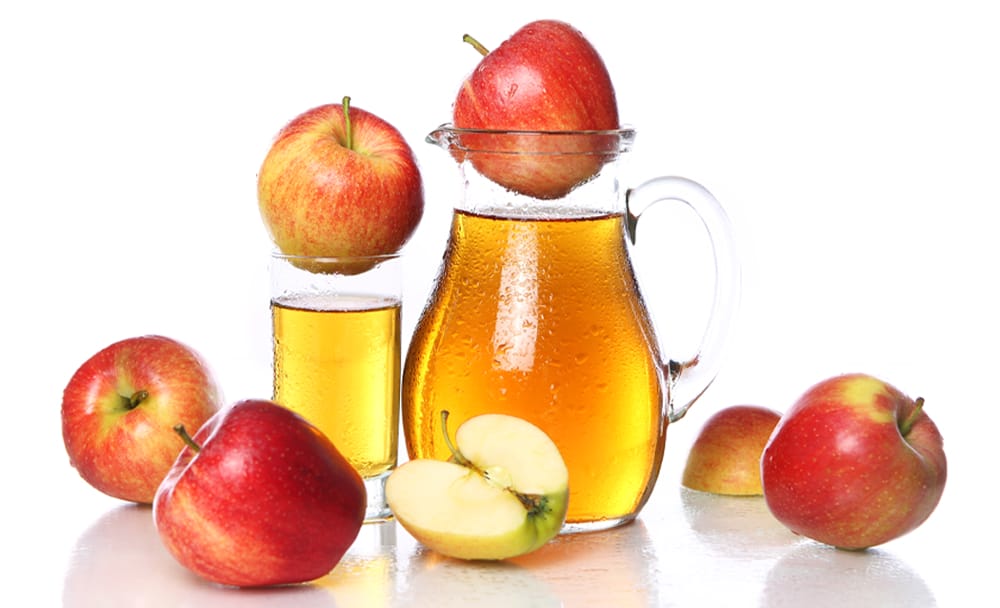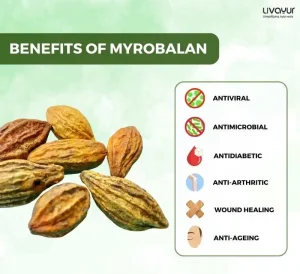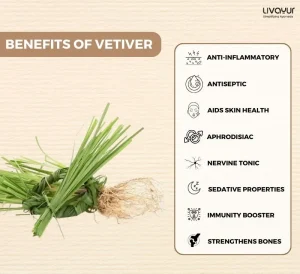
Apple cider vinegar is a healthy beverage traditionally prepared by fermenting ripe apples. There are many health benefits of ACV. It is said to aid in diabetes management, weight loss and improving digestive fire. But, do you know what does Ayurveda say about apple cider vinegar or ACV?
ACV was not the food of ancient India. Therefore, there is nothing written about it in the Ayurvedic texts. However, Ayurveda says that all foods have therapeutic utility if consumed in the appropriate conditions and situations. Hence, apple cider vinegar can also be understood from an Ayurvedic perspective.
Effect of Apple Cider Vinegar (ACV) on Doshas:
According to Ayurveda, ripe apples have an astringent, sweet and sour taste, with a Virya or cooling effect on the belly. The aftereffect of ripe apples is sweet, and hence, they are known to aggravate Vata and pacify Pitta and Kapha Dosha in the body.
However, preparation can change the effects and Rasas of food. In this case, fermentation makes apple cider vinegar sour in taste and renders it hot energy. The aftereffect of ACV is also sour.
Based on these characteristics, the effect of ACV on the Doshas changes. Unlike ripe apples, ACV helps pacify Vata and aggravate Pitta and Kapha Dosha in the body.
Benefits of ACV or Apple Cider Vinegar

- Aids in Diabetes Management: ACV removes toxins or Ama and increases digestive fire, which helps to lower blood sugar levels in the body. Furthermore, ACV is rich in acetic acid, which helps slow the breakdown of carbohydrates to sugar in the blood.
- Reduces Weight: As ACV helps remove Ama and improve Pachak Agni or digestive fire, it is also effective in losing excess body weight. ACV also controls appetite and increases fat metabolism, further aiding in weight loss.
- Lowers Cholesterol Levels: Apple cider vinegar is also highly beneficial in lowering bad cholesterol or LDL and improving HDL or good cholesterol in the body.
- Control High Blood Pressure: ACV also helps to regulate the levels of blood pressure in the body by reducing the activity of renin, an enzyme that increases blood pressure.
- Treats Stomach Ulcers: ACV helps to neutralise the excess acid in the stomach and fight bacterial infections that cause ulcers in the stomach and intestine.
- Relieves Constipation: Apple cider vinegar also acts as a mild laxative and helps to stimulate bowel movements, thereby relieving constipation.
- Cures Food Poisoning: The antimicrobial, antiviral and antibacterial properties of ACV help to fight bacterial and viral infections that cause food poisoning.
- Treats Gastrointestinal Problems: ACV is highly beneficial in treating gastrointestinal problems such as acidity, gas, bloating, abdominal discomfort and indigestion. It helps neutralise the acid level in the stomach, regulate the pH level of the body and boost digestion.
- Detoxifies Liver: ACV is one of the best foods to detoxify the liver and improve liver functions. It helps lower inflammation in the liver, improve appetite and reduce symptoms of hepatitis.
- Cures Gallbladder Infections: ACV is a powerful disinfectant and helps remove all the harmful bacteria from the gallbladder, which can cause gallbladder infection.
- Relieves Respiratory Disorders: Apple cider vinegar is rich in antibacterial, anti-inflammatory, decongestant and bronchodilatory properties, all of which help relieve cough, asthma, hiccups and many other respiratory disorders.
How To Use Apple Cider Vinegar or ACV?
Begin using ACV with ¼ teaspoon of raw and organic apple cider vinegar. Add it to lukewarm water and have it before the first meal of the day. If you do not feel bloated, continue using it till your body has adapted to it. Then, increase the quantity of ACV to 1 teaspoon in 1 cup of warm water. You can also increase the frequency to 2-3 times a day if you do not register any side effects. However, never exceed the quantity from 1 tablespoon a day.
Precautions When Using ACV:
- Do not take apple cider vinegar in undiluted form. Its acidic properties can burn your food pipe and destroy the tooth enamel.
- Avoid taking ACV with acidic fruits such as lemons, as it may cause hyperacidity.
- Do not take ACV after drinking tea or coffee, as it can lead to vomiting.
- Ayurveda does not recommend taking vinegar formulations during pregnancy or breastfeeding. Hence, it is best to avoid ACV during that time.
- Do not take ACV if you suffer from osteoporosis, osteoarthritis, kidney diseases and sore throat.
Takeaway:
Although ACV or apple cider vinegar does not have any Ayurvedic angle, it is recommended by many Ayurvedic practitioners nowadays. The effect on Doshas and other characteristics of ACV are now well understood and are used to treat several diseases. It is especially effective in diabetes management, weight loss, high blood pressure, constipation and stomach ulcers.

























